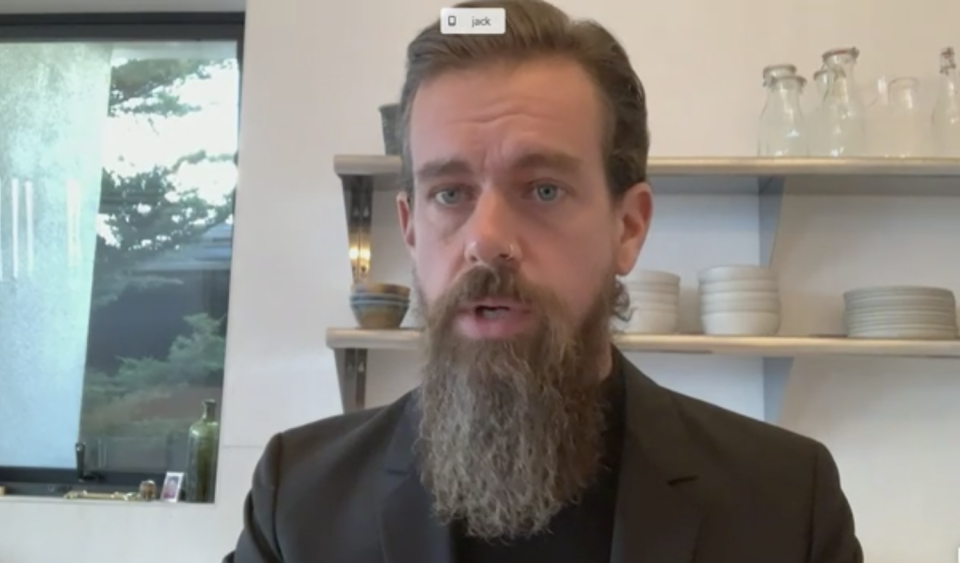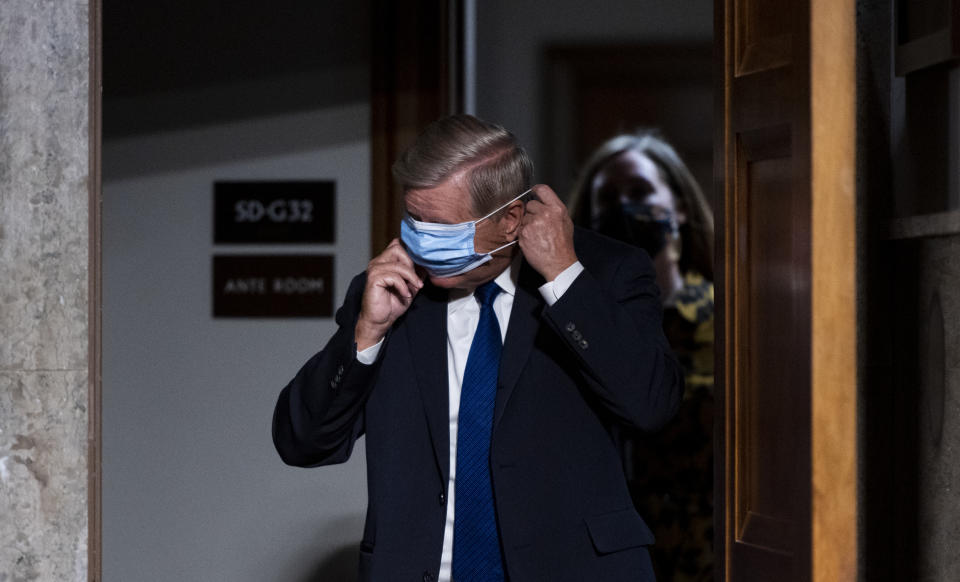Facebook and Twitter CEOs warn against demolishing Section 230, the law that shields tech giants
Facebook’s (FB) CEO Mark Zuckerberg and Twitter’s (TWTR) CEO Jack Dorsey told the Senate Judiciary Committee in prepared remarks Tuesday that they’re open to changes to the controversial law largely credited with allowing their very businesses to thrive. However, changes should go only so far, in their view.
The hearing, “Breaking the News: Censorship, Suppression, and the 2020 Election,” is the second in the past month to address concerns over the power that major online platforms have to decide what can and cannot be posted on their sites — this time with a focus on how that power can influence elections.
The hearing also addressed efforts by both Twitter and Facebook to stem the spread of a New York Post article claiming President-elect Joe Biden met with an adviser to an energy company in Ukraine whose board his son, Hunter, served on.
“We were called here today because of an enforcement decision we made against the New York Post, based on a policy we created in 2018, to prevent Twitter from being used to spread hacked materials,” Dorsey said at Tuesday’s hearing. “This resulted in us blocking people from sharing the article publicly or privately.”

‘We admitted this action was wrong’
Speaking to lawmakers Tuesday, Dorsey said Twitter made a “quick interpretation” that the article obtained information through hacking, and according to its policy, blocked the article from being spread. Facebook took similar action, saying it would reduce the distribution of the story until it could be verified by a third party.
“We admitted this action was wrong and corrected it within 24 hours, we informed the New York Post of our error, and also the update, and how to unlock their account by deleting the original violating tweet, which freed them to treat the exact same content and news article again,” Dorsey told the Committee.
In prepared testimony, Dorsey recommended that Congress work with industry and society to build upon existing law — Section 230 of the Communications Decency Act of 1996. Completely eliminating it, or prescribing reactionary government speech mandates, he said, will neither address concerns nor align with the First Amendment.

“Indeed, such actions could have the opposite effect, likely resulting in increased removal of speech, the proliferation of frivolous lawsuits, and severe limitations on our collective ability to address harmful content and protect people online,” Dorsey said, in his prepared testimony.
‘Platforms would likely censor more content’
For Zuckerberg’s part, in prepared testimony he reminded lawmakers of his position that Congress should update Section 230 to ensure that it’s working as intended. Like Dorsey, he highlighted the benefits of the law, which he said allows Facebook to provide its products and services to users by encouraging free expression.
“Without Section 230, platforms could potentially be held liable for everything people say,” Zuckerberg said, in his prepared testimony. “Platforms would likely censor more content to avoid legal risk and would be less likely to invest in technologies that enable people to express themselves in new ways.”
“Without Section 230, platforms could face liability for doing even basic moderation, such as removing hate speech and harassment that impacts the safety and security of their communities,” Zuckerberg said in the prepared testimony.
Both President Donald Trump and Biden have called for Section 230 to be revoked, yet for different reasons.
Republicans, who subpoenaed the social media executives to testify, argue that Facebook, Twitter, and other online platforms are misusing Section 230 of the Communications Decency Act of 1996 to suppress conservative content online. Democrats argue they’re misusing the law by failing to suppress enough content.
Prior to the hearing, Twitter shared with Yahoo Finance main points Dorsey planned to make to the Committee. The company said Dorsey is committed to embracing changes that permit smaller user-generated platforms to compete against Twitter and other dominant players. It also said it views its work on policies around this election cycle as unfinished. As for accusations that Twitter’s policies are carried out with conservative bias, the company said Dorsey plans to affirm that the perception is unfounded.
A live stream of the hearing can be viewed here on Yahoo Finance.
Read more:
California’s Prop 22 removes a ‘dark cloud’ for Uber and Lyft
What is Section 230, the controversial internet law Trump wants to dismantle?
The Justice Department’s fight against Google doesn’t spell the end of Big Tech
‘Dangerous for Democracy’: Big Tech hearing gives clues on future of antitrust law
Alexis Keenan is a legal reporter for Yahoo Finance and former litigation attorney.
Follow Alexis Keenan on Twitter @alexiskweed.
